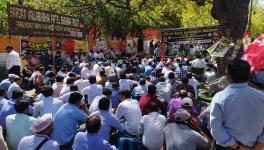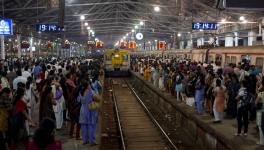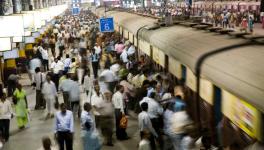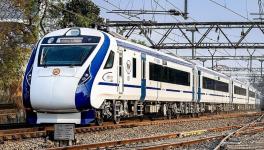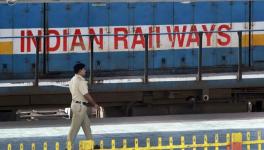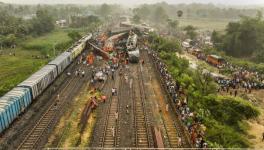Budget 2020-21: Will Finance Minister Highlight Railway Revenue Fall or Hide it?
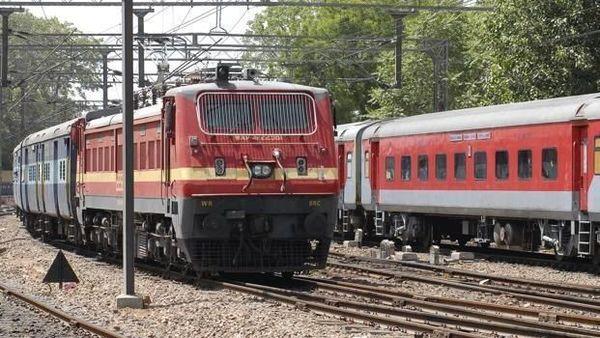
New Delhi: Amid a gloomy economic scenario and dipping revenue, Finance Minister Nirmala Sitharaman has to do some jugglery to make Indian Railways’ balance sheet presentable in Parliament on Saturday.
Facing its worst financial crisis ever due to the fall in freight and passenger earnings and the operating ratio hovering beyond 100%, it is to be seen how the Rail Budget would be unfolded in the House.
Aiming for an operating ratio of 95% in the current fiscal, down from 97.3% in financial year 2018-19, the prevailing position is that the operating ratio is over 110%, which is not a healthy sign for the national transporter.
Operating ratio measures expenses as a proportion of revenue or the amount spent on every rupee earned. The lower the ratio, the healthier are railways' finances.
The dismal financial condition of the current fiscal can be gauged from the fact that the total earnings of the national transporter till January 20, 2020, are not even at par with the corresponding period for the last fiscal.
Railways earned Rs 143,788.01 crore during April 1-January 20 this year, against Rs 144,504.89 crore for the same period last year, a negative growth.
It has fallen short in the number of passengers travelled in trains during this time as a total 6,824.85 million passengers booked tickets during April 1-January 20 period in 2018-19 as compared to 6,758.71 million for the current year.
In the last fiscal, the Railways had brought in an additional revenue from power major NTPC and container firm CONCOR amounting to Rs 18,000 crore under the Freight Advance Scheme (FAS), resulting in achieving the operating ratio target.
This was pointed out by the Comptroller Auditor General (CAG) in its latest report highlighting the worst ever operating ratio scenario, hitting a 10-year high of 98.44% in 2017-18.
The FAS, which offers its premium freight customers tariff certainty for the entire fiscal and priority in rake allocation, however, is yet to find any takers.
However, the Railways are hopeful that something would be worked out before the end of the current fiscal, by March 31, 2020.
Indian Railways, the lifeline of the country, is considered to be one of the key drivers of the economy and is grappling with the Centre’s privatisation move amid the strong opposition from within.
While the draft proposal for private operation of 100 trains is being floated around, seeking response from interested players, there is also a move to corporatise its seven production units.
Though both these moves are being fiercely opposed by employee unions and affected workers, the Railways are going ahead with the plan.
Whether the Finance Minister would point out these far-reaching actions in her second Union Budget speech or not on February 1, is being eagerly awaited.
While the Indian Railways is struggling to keep its expenditure under control and shore up the earnings amid an overall gloomy economic scenario, the Union Budget is likely to see a jump in capital expenditure.
A highest-ever outlay for capital expenditure of over Rs 1.70 lakh crore is being expected this time, against of Rs 1.60 lakh crore in last year's Budget, while in the previous year it got Rs 1.48 lakh crore.
The gross budgetary support for the Railways will also increase this year to over Rs 70,000 crore as compared to over Rs 65,837 crore in the previous year.
Freight earning, which has a direct bearing on the Railways' financial health is also sluggish this time, due to the decline in coal, cement, iron ore and foodgrains movement, amid the ongoing economic downslide.
In order to tide over the crisis, the Indian Railways is shifting its focus to non-bulk commodities, such as bamboo, marbles, fast-moving consumer goods, automobiles, among others.
The writer is an independent journalist based in Delhi and has been extensively covering Indian Railways.
Get the latest reports & analysis with people's perspective on Protests, movements & deep analytical videos, discussions of the current affairs in your Telegram app. Subscribe to NewsClick's Telegram channel & get Real-Time updates on stories, as they get published on our website.









